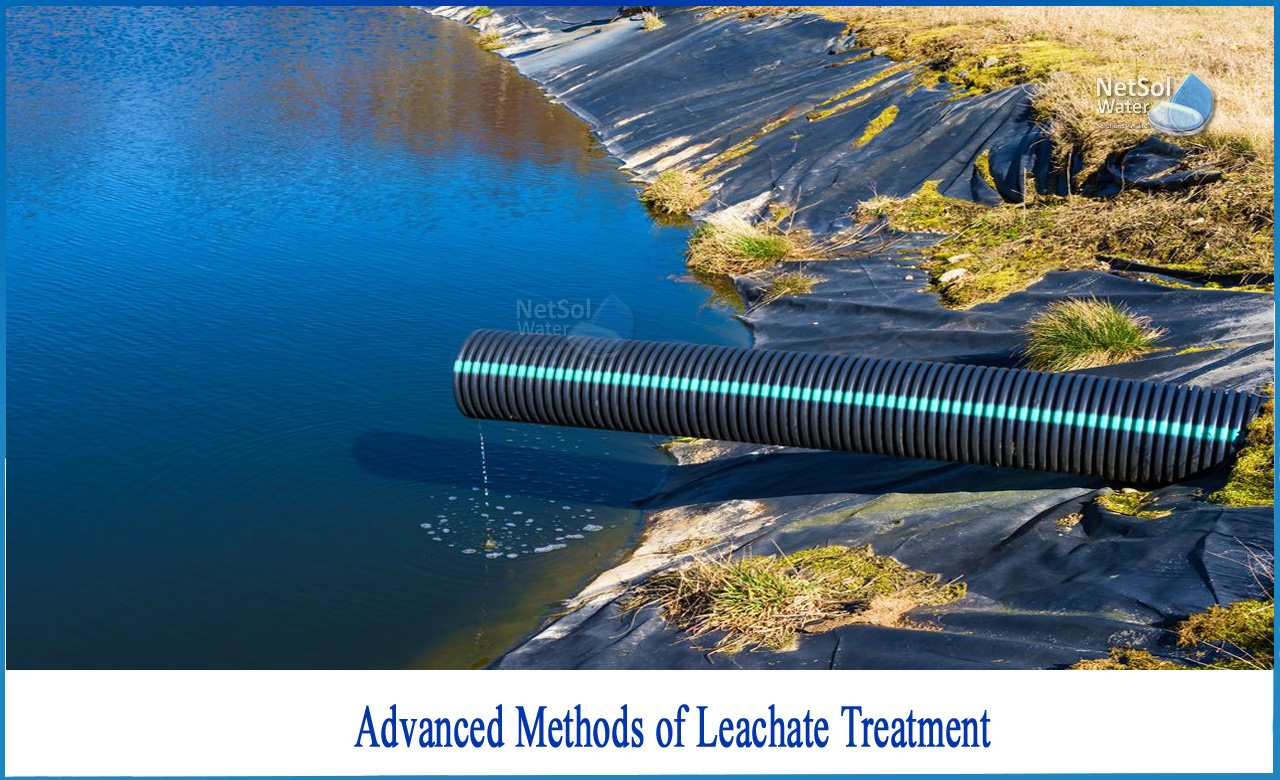What is the advance method of Leachate Treatment?
Membrane application treatments are advanced leachate remedies. Because membranes may produce high yields of pollutant removal from leachate, they are typically used in conjunction with biological and physical-chemical treatments to accomplish in-depth and optimum leachate treatment.
Reverse Osmosis (RO), Microfiltration (MF), Ultrafiltration (UF) and Nanofiltration (NF) are the four kinds of membranes, from biggest to smallest pore size.
1. Reverse osmosis (RO)
RO is a very efficient pressure-applied technology for wastewater purification, including leachate.All dissolved and suspended particles, traces of organic components, heavy metals, and monovalent ions may be concentrated using RO process.
In the treatment of leachate, the yields of RO system are:
> 98 percent elimination of COD and > 99 percent removal of heavy metals.
The primary drawbacks of RO system are its high clogging and bio-fouling potential (which need prior treatment, such as the installation of UF membranes) and the production of a huge volume of concentrate.
2. Microfiltration (MF)
Colloids, suspended solids, bacteria, and viruses are all removed using MF membranes. They are often used as a pre-treatment for other UF, NF, or RO membranes, or for later chemical treatments in leachate treatment. They are not used alone because their efficacy for effluent requirements is low.
3. Ultrafiltration (UF)
UF membranes are made up of a selective filtration process that uses pressures of up to 10 bars. These membranes remove high molecular weight organic macromolecules and particles, allowing organic materials to be fractionated. The type of material used to make a UF membrane has a significant impact on its efficacy.UF membranes are commonly used as a pre-filtration step in RO processes to improve efficiency and prevent blockage.
In MBR systems, UF membranes are the most typically used-
Membrane bioreactor(MBR) systems:
It entails the use of ultrafiltration membranes in biological therapy as a way of biomass retention. The membranes act as a separator for the sludge generated in the reactor, obviating the need for a subsequent clarifier. It also prevents biomass loss (loss of nitrifying microorganisms and microorganisms capable of degrading slowly biodegradable organic matter), allowing for very high biomass concentrations to be achieved within the reactor.
These reactors have a high biomass concentration, a low sludge output, and a strong pollutant removal performance.They are commonly employed in leachate treatment because they allow for a flexible design and operation that can be tailored to any kind of leachate. The installation of RO membrane units after an MBR reactor is a frequent procedure.
MBR yields exceed 90% COD reduction in leachate treatment.
4. Nanofiltration (NF)
In the treatment of leachates, NF membranes are used to remove stubborn organic debris and heavy metals. These membranes produce a relatively little amount of concentration.
COD reduction yields of up to 70 - 80 percent can be reached when NF membranes are coupled with physical procedures.
To prevent clogging, NF membranes must be carefully monitored.
Conclusion
The difficulty faced in the application of membrane technology in the treatment of leachate is to create an efficient-cost balance while also correcting clogging and bio-fouling issues.When planning and installing a membrane system, the choice of cleaning agents and procedures is critical in order to maximize both operational cost and performance.
What can Netsol Water offer?
Netsol Water is a leading manufacturer and supplier of Commercial and Industrial RO Plants in India, serving a large number of customers. Our various models of Commercial RO Water Plants, such as the 50 LPH RO plant, 100 LPH RO plant, 250 LPH RO plant, 500 LPH RO plant, 1000 LPH Commercial RO plant, and so on, are ISO certified, BIS Qualified, and in high demand in the water treatment market due to their ability to convert raw, contaminated water into sage, potable water.For industrial RO Plants, the available merchandise water capacity extends from 500 LPH to 10,000 LPH, making it appropriate for a wide range of sectors.
Netsol Water is Greater Noida-based leading water & wastewater treatment plant manufacturer. We are industry's most demanding company based on client review and work quality. We are known as best commercial RO plant manufacturers, industrial RO plant manufacturer, sewage treatment plant manufacturer, Water Softener Plant Manufacturers and effluent treatment plant manufacturers. Apart from this 24x7 customer support is our USP. Call on +91-9650608473, or write us at enquiry@netsolwater.com for any support, inquiry or product-purchase related query.



